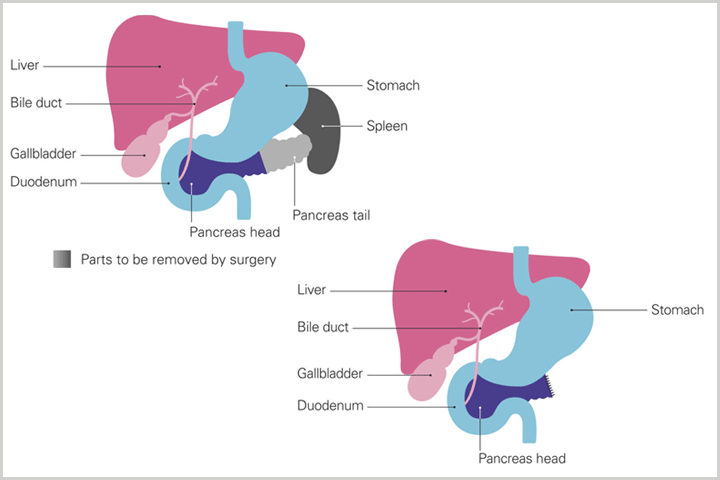Molecular Profiling: Getting to Know Your Tumor

Some people name them, others prefer to keep the relationship strictly professional. Either way, it’s a good idea to get to know your tumor, on the molecular level.
Tumors are as unique as their owners. Patients with the same types of cancer will not necessarily respond in the same way to the same treatments. In order to match patients with the right treatment, doctors are seeking instructions from the body’s very own instruction manual: DNA.
Terms like “genetic testing” and “molecular profiling” are bandied around with increasing frequency, especially in this emerging era of precision medicine. But what exactly do they mean?
Genetic Testing
As explained in “The ABCs of Genetic Testing,” pancreatic cancer is fundamentally a genetic disease caused by changes in your DNA. Most cases are caused by mutations that accumulate over time, but about 10 percent can be attributed to inherited mutations. These inherited mutations are the focus of genetic testing, which can look for mutations in certain genes to determine if you are predisposed to the disease. One of the most well-known cancer-causing mutations, for example, is BRCA, often associated with breast and ovarian cancer, and to a lesser extent, pancreatic and prostate cancer.
This knowledge can also be helpful in guiding treatment if you do develop cancer, as tumors with certain kinds of mutations may respond better to some types of chemotherapy. For example, platinum-based chemotherapy and PARP inhibitors are more successful treatments for BRCA carriers.
Molecular Profiling
Molecular profiling takes genetic testing to the next level. Conducted on samples of tumor tissue, these tests analyze DNA, RNA, and protein in cancer cells in order to extract information that can be used to inform treatment decisions. The tests can be done using a variety of technologies, ranging from somewhat simple to super complex.
Immunohistochemistry (IHC), for example, determines the level of protein expression in a tumor. When DNA is mutated, it causes changes in proteins that can support tumor growth, cancer cell survival, or resistance to cancer treatment. Some drugs have been designed to target these protein pathways.
Next-generation sequencing (NGS) is another category of testing that involves deep dives into DNA to detect changes in its structure. Knowing where these faults are located can help identify other drugs that target these Achilles heels of the genes.
How it Works
A sample from a biopsy of your tumor is sent to a laboratory, where it undergoes one or a series of advanced genetic tests in order to create a genetic map or to identify “biomarkers” like proteins that give clues to the state of your cancer. The resulting profile of your tumor can then be compared to thousands of published studies and other patient reports to identify which treatments your cancer is likely—or not likely—to respond to.
Pancreatic cancer patients have the opportunity to get their tumor analyzed as part of such programs as the Pancreatic Cancer Action Network’s Know Your Tumor. In addition to gaining valuable insight into their own tumor, participants become part of a global research initiative. The patient registry database was created to look for patterns in treatments, side effect management and diagnostics, in an effort to ultimately improve treatment options and patient outcomes.
How it Is Used
In some cases, molecular profiling can help patients and their doctors decide among existing treatments.
This is the approach taken at Medical College of Wisconsin (MCW). They recently conducted a trial using molecular profiling in patients with early-stage disease, to look for six genetic signatures that are known to be linked to sensitivity to specific drugs, such as the transporter ENT1 (tied to chemotherapeutic gemcitabine). The work being done at MCW was featured in the story “Precision Medicine from the Get-Go for Pancreatic Cancer.”
More commonly, however, molecular testing is used to help identify candidates for clinical trials that are testing new therapies on patients who have not responded to existing therapies, or whose cancer has progressed.
Johanna Bendell, M.D., Chief Development Officer and director of the GI Cancer Research Program at the Sarah Cannon Research Institute, in Nashville, Tennessee, stated in a 2016 video report on OncLive that the benefits of molecular profiling have been greater in cancers with broader treatment options. But she was optimistic that this will change as more drugs are developed for pancreatic cancer. In the video she noted that not many pancreatic cancer patients have benefited from this testing, but it can be helpful in getting patients into clinical trials.
Molecular profiling can make a big difference. As Mike Levine explained in his story, molecular profiling showed that the chemotherapy he had at the start of treatment was not right for his genetics. His new regimen, which includes gemcitabine, is much better for fighting his pancreatic cancer.






